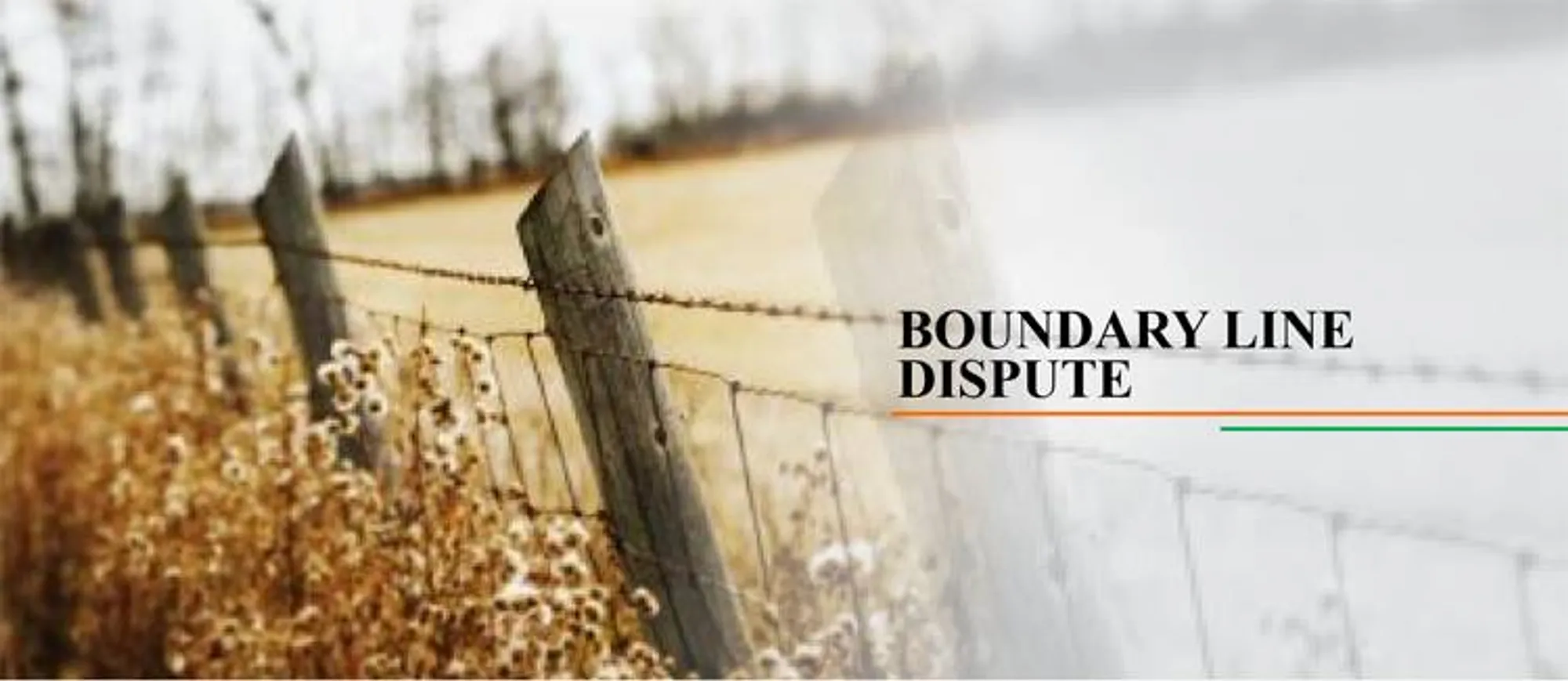The geographies, measurements and dimensions of the property, are one of the leading causes of disputes. Robert Frost rightly wrote good fences make good neighbours. The land is one of the most revered assets in man’s life, therefore, its length and breadth should not be ignored by the landowner.
As per Survey Act, 1865 ‘boundary dispute’ means contentions between two neighbouring land-proprietors as to where a boundary line or boundary marks has or have been fixed by the Survey officers. The dispute becomes graver when the said part of the property in dispute is mortgaged by one of the parties.
Boundary line disputes are most often in residential areas and therefore affect the privacy and also the cordial relation of the neighbours. It could result in serious consequences including the punishment for trespass or unrestricted right to cut off the branches of tree extending to the property of another without the first person’s permission and extension of it for continuously long period cannot be taken as a defence then (Smt. Manikkam v. Smt. Kamala, AIR 1987 Ker 72). Such disputes are found more in case of single-family residential, sub-urban or rural areas where the property is not properly demarcated. Changes in natural settings, development of easementary right, getting hold of property by adverse possession or ignorance of wrong particulars in property papers for a long time; are all root causes of such dispute.
Both the parties usually are under some impression as to their boundary, but the dispute crops up when there is illegal encroachment or some construction is done beyond the ‘presumed’ boundary line. The true property owner has the right to get rid of it, for which either the other party is expected to remove the encroachment or the owner would be free to do it himself so far it crosses his boundary.
Updated Land records can be of use to resolve such dispute, however, in its absence, a fresh survey could be asked to be conducted by an independent contractor.
Negotiation and mediation should be preferred over filing a declaratory suit or suit of trespass. However, in case of failure to achieve any positive results, suit is the end option. Where the suit of continuing trespass or ejectment could provide with damages along with the relief claimed, on the other hand, a court by making a declaration can clear all doubts with respect to the dimensions and title of the property.

